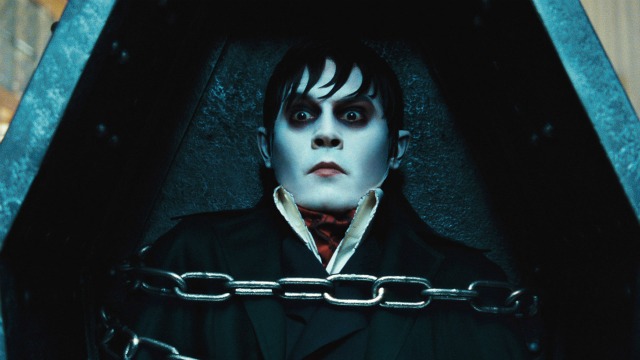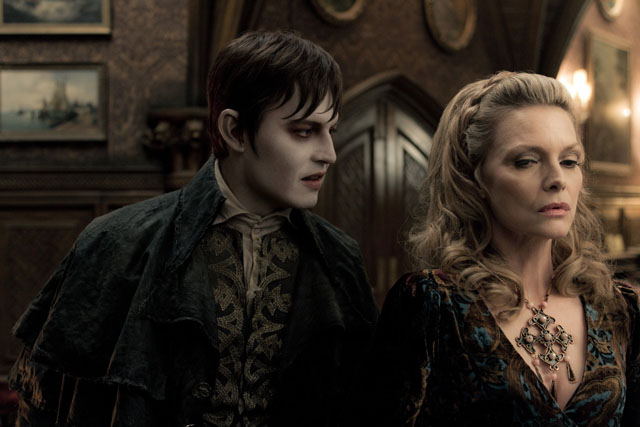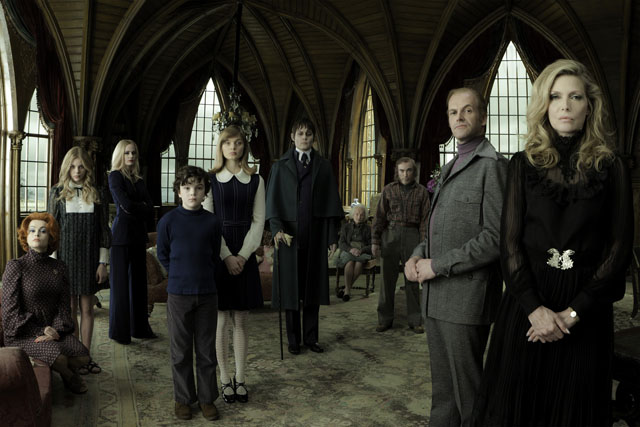Filtered By: Lifestyle
Lifestyle
Movie review: 'Dark Shadows' falls flat
As “Dark Shadows” opens, we are introduced to Barnabas Collins (Johnny Depp, in fine form), playboy heir to a New England fishing empire, who spurns the affections of Angelique Bouchard (Eva Green, in finer form) because of her status as a house maid. When his parents die under mysterious circumstances, Collins realizes that the woman he rejected is a witch, and she’s not taking things lightly. Angelique‘s ultimate revenge comes when she transforms Barnabas into an immortal vampire seconds after he sees his fiancé, Josette (Bella Heathcote), plunge to her death. Soon after, Angelique incites the townspeople to trap Barnabas in a sealed coffin, burying him seemingly forever. 

Two hundred years later, in 1972, Victoria, a mysterious young woman with a striking resemblance to the long-dead Josette (no coincidence, she’s also played by Heathcoate) arrives at the now-dilapidated Collins family mansion, Collinwood, to take on the duties of nanny. Before long, the immortal Barnabas is freed from his tomb, ready to pick up where he left off.
Barnabas quickly discovers that the world of 1972 is far different from the one he left behind. Collinwood is in disrepair and the family business is near ruin, no match for rival Angel Bay Fishery. It turns out that Angel Bay is run by no other than the witch Angelique, who’s made it her mission in (immortal) life to destroy everything the Collins family stood for. With his descendant Elizabeth (Michelle Pfeiffer), Barnabas sets about beating Angelique at her own game and restoring his family to its former glory.
Despite a promisingly dark opening and intriguing introductions to the main characters, “Dark Shadows” fails to deliver on its promise, largely falling flat once the story gets going. The main problem is that the film doesn’t seem to know what it wants to be. “Dark Shadows,” based on the long-running 1960s soap opera of the same name, veers from black humor to awkward slapstick, but alas, the deft balancing act between the humorous and the macabre that Tim Burton made his name on is nowhere to be found. He has fine actors doing their best with the material, but the best efforts can’t redeem a story that seems like it was put together on the fly.
 Indeed, the haphazard manner in which plot points are introduced, only to be forgotten, dismissed or outright taken for granted as the film progresses, serve to frustrate. Among the most glaring of these are how, why or even when Barnabas falls for Victoria (much less why that love is reciprocated), but even that pales in comparison to the bombshell dropped by Chloe Grace Moretz’s character in the last five minutes of the film. While this narrative hopscotch may be acceptable on a daily soap opera, it’s downright unforgivable in a major motion picture.
Indeed, the haphazard manner in which plot points are introduced, only to be forgotten, dismissed or outright taken for granted as the film progresses, serve to frustrate. Among the most glaring of these are how, why or even when Barnabas falls for Victoria (much less why that love is reciprocated), but even that pales in comparison to the bombshell dropped by Chloe Grace Moretz’s character in the last five minutes of the film. While this narrative hopscotch may be acceptable on a daily soap opera, it’s downright unforgivable in a major motion picture. On the performance front, Depp’s measured tones and well-honed English accent are appropriate to Barnabas’ character, effectively bringing across his pained dignity and frustrations in dealing with an unfamiliar era. In contrast, the always-stunning Eva Green goes for outright camp in her depiction of a woman scorned, chewing up scenery with reckless abandon. In retrospect, she may have had the right idea, as she seems to be the only one in the movie having any fun.
The rest of the cast is—if one will forgive the expression—to die for. Pfeiffer acquits herself well as 1972’s Collins family matriarch, Elizabeth, maintaining an air of dignity about her even as everything—figuratively and, later, literally—falls apart around her. Elizabeth wants only the best for her family, which includes her acerbic teen daughter, Carolyn, played by the aforementioned Chloe Grace Moretz. “Watchmen”’s Jackie Earle Haley gets some of the biggest laughs in the film as Collinwood’s perennially inebriated caretaker, and Burton regulars Helena Bonham Carter (as Elizabeth’s alcoholic psychiatrist, Dr. Julia Hoffman) and Christopher Lee (in a welcome cameo) add color to the ensemble. The less said about Alice Cooper’s painfully forced cameo, the better.

From a production standpoint, the film is a sight to behold, with Bruno Delbonnel’s expert cinematography perfectly complementing the gorgeous production design and sumptuous costumes one has come to expect from a Tim Burton film.
Particularly worthy of mention is the Collins homestead, Collinwood, a delightfully atmospheric creation that has you believing every cobwebbed chandelier and secret passage has a story to tell. Of course, technical accomplishment and art design do not a coherent film make (“Alice in Wonderland,” anyone?).
While one does long for the days when Tim Burton’s filmography wasn’t dominated by half-hearted remakes and Johnny Depp vehicles, one must accept the fact that quality—or lack thereof—rarely dictates box-office (“Alice in Wonderland,” anyone?). Granted, originality in this day and age may be too much to hope for, but one can only hope that Burton has a good movie or two left in him, and maybe, just maybe, after this misfire, he’ll get around to actually making them. –KG, GMA News Photos courtesy of Warner Bros. Pictures
More Videos
Most Popular



